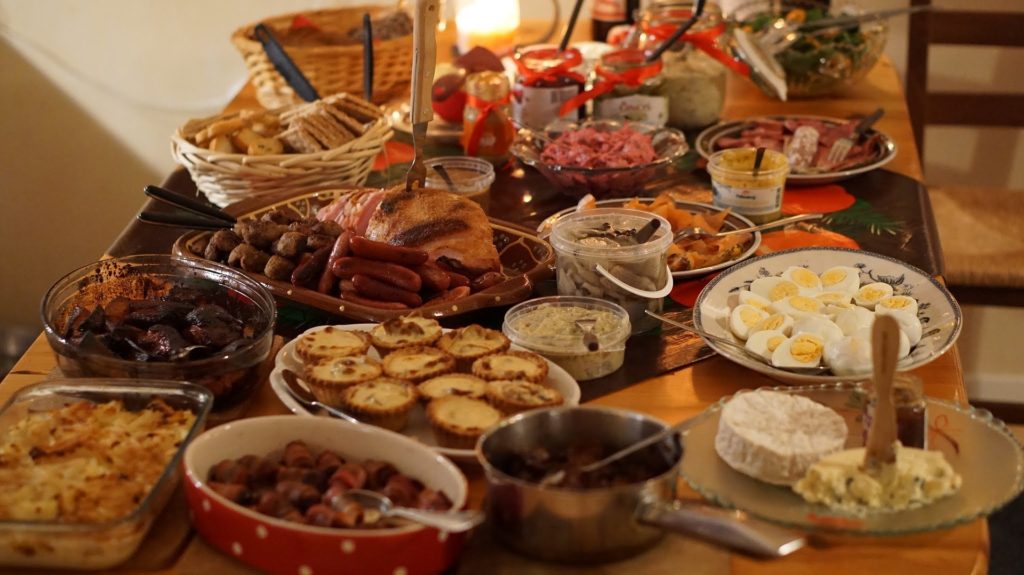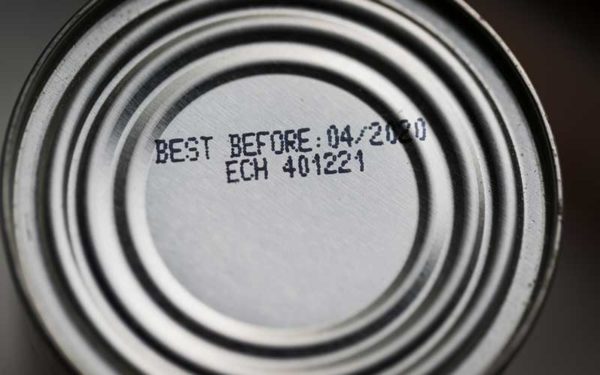
In the United States, we waste a staggering 40 percent of our food. This holiday season, try some of these tips for reducing food waste. Photo: Pixabay
Every December, my mother’s room table fills up with my siblings, their spouses, and the grandchildren for our annual holiday feast. Feeding 24 people is no joke – and inevitably, some of the food we put on the table goes to waste. Every year, we pledge to waste a little less food, not just because we hate to throw away money and time, but because food waste can be terribly damaging to the environment.
So let’s think about this for a second. What can you do to keep your holiday feast from producing so much food waste?
The Visible and Invisible Costs of Food Waste
In the United States, we waste a staggering 40 percent of our food. Some of it doesn’t get picked at farms because there is no market for it. Some is wasted because of poor and confusing labeling laws (“best by” is not the same as “expiration”). Some is thrown out on cafeteria trays and restaurant tables. And about 45 percent gets thrown out at our homes each year (most of us toss about 24 pounds of food each month). In Massachusetts alone, we send about a million tons of food and yard waste to our landfills and incinerators each year.
This is a big problem because:
- 17 percent of the people in this country don’t get enough healthy food to eat;
- $1.3 billion per year is spent sending food to landfills in the United States;
- Food and yard waste in landfills creates methane, a climate-damaging gas that is 28 times more potent than carbon dioxide.
While what happens to food waste is tied up in a much larger system of how cities, towns, and the state handle all of our household waste, individual actions still matter! So I’m here to give you a few tried and true tips for minimizing your food waste this holiday season. It’ll save you money, time, and angst – and you’ll be doing your part for the environment.
Reduce: Shop Well, Little Grasshopper
- Buy the Right Amount – How many people are coming? How much is each of them really going to eat? How many days are you actually going to eat leftovers? Figure it out before you go to the grocery store so you don’t overbuy and waste money. After the dust settles and everything is eaten, write down what you would do for the same-sized group next year while it is still fresh in your mind (it’s never too early to start planning for the next holiday dinner!). Check your notes before you start shopping, so you don’t throw in an extra can of mincemeat that will sit on your shelf for a year.
- Buy Carefully – Are yams sweet potatoes? Are sweet potatoes yams? Figure out exactly what you need before you get to the store, and then check on your phone when you’re there if you are not sure. Again, you’ll save yourself a lot of money (and possibly another trip to the store).
Eaten by People: Share It, Freeze It, and Donate It
- Don’t Put Anything on Your Plate that You Might Not Eat – My 11-year-old nephew Eddie always wants two desserts, though he sometimes can only finish one. As the person who makes the Christmas trifle (Zuppa Anglaise, a specialty of my Italian grandmother), no way am I letting him take them both at once. Come back for a seconds after you finish the first. Overeating is part of the holiday season. Wasting sugar cookies is not.
- Plan to Share – We bring our own containers, and we divvy up the leftovers right after the meal. Don’t let everyone leave until they have their doggie bag. Your guests will appreciate not having to cook for themselves for a few days.
- Freeze Leftovers for Another Day – Most stuff freezes pretty well, and you can use it in a variety of ways down the road. Make mashed potatoes into potato bread, Brussels sprouts into quiche, and rolls into breadcrumbs you’ll be thankful for in the coming weeks. Remember friends and neighbors who may have not had as lavish a celebration as you did. The junior staff at work may really appreciate sweets you’re ready to toss, and elderly folks at your church or book club may not be baking as much as they used to.
- Donate – If you do have unopened (cranberry sauce) or untouched food (vegetables you won’t use) that is not part of your usual non-holiday festival diet, look into donating it to a local food rescue organization or food pantry. However, make sure you call ahead to find out their hours and eligibility requirements. (They don’t want your aunt’s green bean casserole – no one does).
Eaten by Animals
- A Real Doggy Bag — Anything you can feed to your pets? Does anyone in your neighborhood raise chickens? Or pigs? Any farms that accept food waste? I bring any spoiled milk I have to my brother’s chickens. This is not a solution that is going to work for most households, but it is something to consider.
In the meantime, buy less, eat more, share more, and feed your pets. Everyone at the Zero Waste Project hopes you have a very happy holiday!



